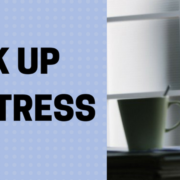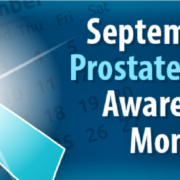Break Up with Stress
April marks the beginning of a time filled with transition and activity. With so much happening this time of year, it can be very stressful for some, and it’s important we recognize this early. With the start of a new quarter, the countdowns towards the end of the school year, and even the segue into the heart of spring, stressful moments await; which is why April is recognized as Stress Awareness Month.
In small bouts, stress isn’t all bad. It may help motivate, perform under pressure, and even keep your body at a heightened level of sharpness. Conversely, when you’re under heavy amounts of stress, this can lead to major emotional, psychological, and even physical consequences. Today we’ll discuss ways of identifying stress, and also some of the best strategies to deal with it.
The International Stress Management Association (ISMA) lists the following ways to identify stress:
- Psychological Signs
- Memory lapses
- Worrying
- Negative thinking
- Depression and anxiety
- Emotional Signs
- Mood swings and irritability
- Lack of confidence and self-esteem
- Feeling out of control
- Extra sensitivity to criticism
- Physical Signs
- Weight loss or gain
- Aches and pains as well as muscle tension and grinding teeth
- Indigestion and heartburn
- Hyperventilating and panic attacks
- Menstrual changes and loss of libido
- Behavioral Signs
- No time for relaxation or pleasurable activities
- Prone to accidents and forgetfulness
- Social withdrawal
- Insomnia
- Increased reliance on alcohol, smoking, recreational or illegal drugs
Stress comes in different shapes and sizes, and will never affect any two people alike. While these effects vary, there are staple activities we all can do to help cope with, or eliminate stress. According to Health.com, here are some ways to cope:
- Get some fresh air – Sights, sounds and smells redirect your focus. Vitamin D from sunlight may elevate your levels of feel-good serotonin.
- Rely on rituals – A consistent routine not only helps you sleep, but our bodies naturally crave it. It can help take back control over part of the day.
- Get out of your head – Stress lingers on your mind so immerse yourself in creative, involving activities.
- Exercise – Exercise lowers the symptoms related with mild depression, boosts your energy, all while keeping you calm and focused.
- Express your gratitude – Writing down your feelings of gratitude and/or expressing them to friends, family, and other close ones, has positive impacts on the brain.
April is a great month that needs to be enjoyed and not hampered by stress. If you’re looking for more ways to celebrate the month, check out beliefnet on ways to garner recognition for stress awareness. Additionally, if you feel you may be exhibiting some of these symptoms, don’t rationalize them. Talk with your R-Health doctor for solutions.













Leave a Reply
Want to join the discussion?Feel free to contribute!